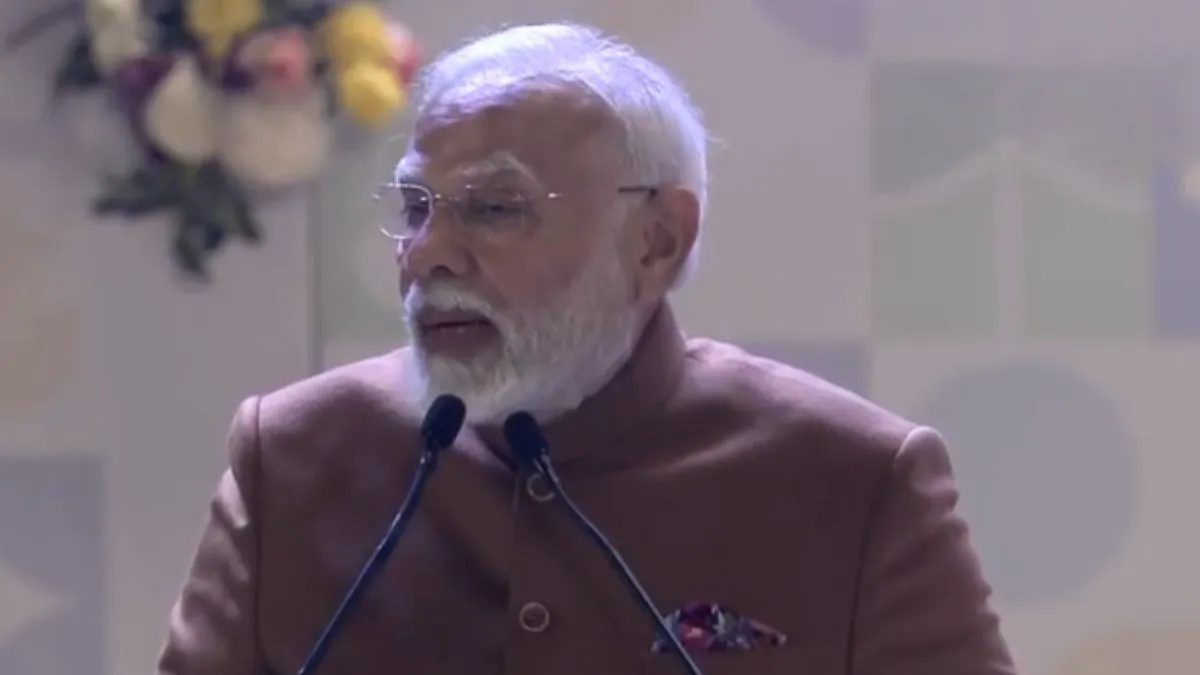- By Anushka Vats
- Sat, 04 Jan 2025 11:42 AM (IST)
- Source:JND
Prime Minister Narendra Modi on Saturday inaugurated Grameen Bharat Mahotsav 2025 at Bharat Mandapam, New Delhi. After the inauguration, the Prime Minister also interacted with the artisans at Grameen Bharat Mahotsav 2025 which are being organised at Bharat Mandapam. Addressing the crowd, PM Modi highlighted his vision to empower rural India by transforming villages into vibrant centers of growth and opportunity.
"At the beginning of the year 2025, this grand event of Grameen Bharat Mahotsav is introducing India's development journey. It is creating an identity. I congratulate NABARD and other colleagues for organizing this event," PM Modi began his speech.
Speaking further about the policies and schemes of Centre, the Prime Minister said that it is crucial to keep in mind every section of the village while making economic policies. He also highlighted the Cabinet's decision to approve the continuation of the PM Fasal Bima Yojana for one more year.
#WATCH | Delhi: At Grameen Bharat Mahotsav 2025, Prime Minister Narendra Modi, says "Clean drinking water is reaching every household in lakhs of villages. Today, people are getting better options for health services in more than 1.5 lakh Ayushman Arogya Mandirs. With the help of… pic.twitter.com/U4WvVlWYI8
— ANI (@ANI) January 4, 2025
"Clean drinking water is reaching every household in lakhs of villages. Today, people are getting better options for health services in more than 1.5 lakh Ayushman Arogya Mandirs. With the help of digital technology, we have also connected the best doctors and hospitals in the country to the villages and have availed the benefit of telemedicine...For strengthening the rural economy, it is very important that economic policies are made keeping in mind every section of the village. I am happy that in the last 10 years, our government has made special policies and taken decisions for every section of the village. Just 2-3 days ago, the Cabinet approved the continuation of the PM Fasal Bima Yojana for one more year," added the PM.
PM Modi further reiterated a survey that was conducted a few days ago and said, "In comparison to 2011, now the purchasing power of the people of the village has increased almost 3 times, that is, the people of the village are spending more than before. Earlier, the situation was such that the people of the village had to spend more than 50% of their income on food but after independence, it has happened for the first time that even in rural areas, the expenditure on food has reduced by 50% and the expenditure capacity towards purchasing necessities has increased."
(With inputs from agency)

